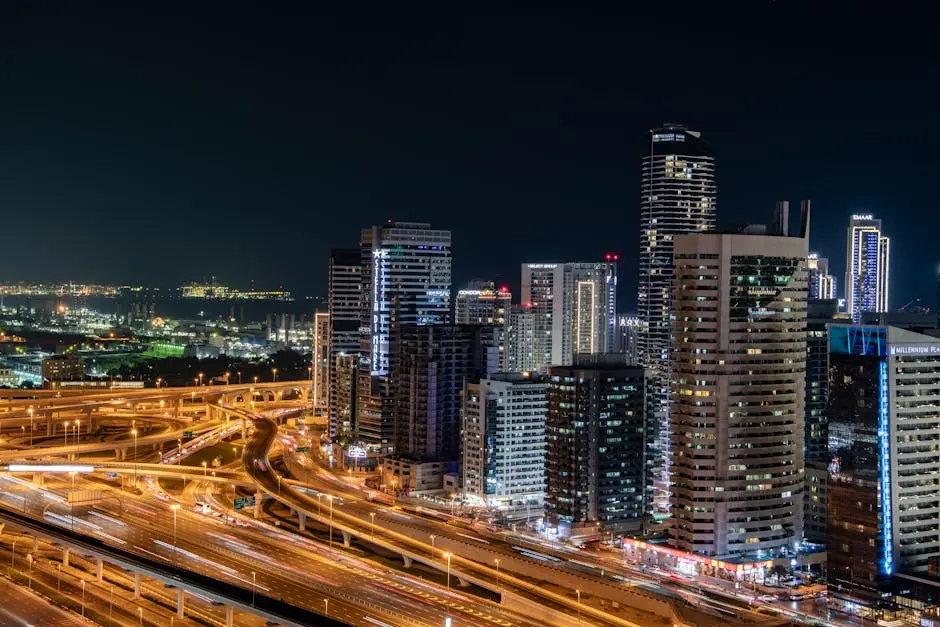Cons & Pro for buying properties in United Arab Emirates
The United Arab Emirates, particularly Dubai, has emerged as a vibrant hub for real estate investment, attracting buyers from around the globe. With its promise of luxurious living and enticing investment opportunities, many are tempted to enter the market. However, like any significant financial decision, buying property in the UAE comes with its own set of pros and cons. In this blog, we will explore the benefits and drawbacks of investing in Dubai luxury apartments and other properties in the region.

Overview of the UAE Real Estate Market
The UAE real estate market has consistently attracted global interest due to its appealing economic factors and lifestyle offerings. With a diverse portfolio that includes commercial, residential, and leisure properties, the landscape is rich with opportunities for investors. Since the introduction of various freehold zones, foreign ownership of property has surged, offering an array of investment possibilities. Additionally, the government’s commitment to infrastructure development, exemplified through transportation projects and tourist attractions, enhances the appeal of investing here.
Historically, property prices in Dubai have shown resilience, despite the fluctuations experienced in global markets. From high-end luxury apartments overlooking the iconic skyline to sprawling villas in serene neighborhoods, there is something to cater to every investor’s appetite. Moreover, the continuous influx of expatriates and tourists ensures a robust demand for housing, which in turn fuels the growth of the real estate sector. Understanding these dynamics is crucial for anyone looking to delve into the property landscape of the UAE.
Pros of Buying Properties in the UAE
One of the most compelling reasons to purchase properties in the UAE is the tax advantage it offers. With no capital gains tax and no inheritance tax, investors can enjoy higher returns on their investments. This favorable tax climate significantly enhances the overall financial allure of buying properties in Dubai. Furthermore, the absence of property taxes allows for more predictable investment decisions, making property ownership relatively easier on the wallet.
Another key selling point is the potential for substantial rental yields. Investors who engage in the lucrative holiday rental market can benefit from high occupancy rates, particularly in vibrant areas popular among tourists. With Dubai luxury apartments often fetching premium rental prices, investors will find that their properties can provide impressive returns in a relatively short time frame. This is further supported by a demand for short-term rentals fueled by major international events, such as exhibitions and conferences, held in the city.
Additionally, the UAE boasts a lifestyle that is luxurious and convenient. With world-class amenities, top-notch healthcare, and a safe environment, the country becomes an attractive place to call home for many expatriates. This combination assists in driving demand for properties, especially in sought-after locales. As a bonus, the strategic location of the UAE provides easy access to international markets, enhancing its appeal for business and trade.
Tax Benefits in the UAE Real Estate Sector
Understanding the tax landscape is essential for anyone investing in the real estate market. The UAE offers a tax regime that is both inviting and advantageous for property buyers. The absence of personal income tax is a significant draw, allowing investors to retain more of their profits. Moreover, property transactions often do not incur various local or national taxes, which can significantly reduce the overall costs associated with purchasing real estate.
In addition to eliminating capital gains tax, the UAE allows foreign investors the opportunity to acquire property without the burden of steep tax obligations. This environment creates a more conducive atmosphere for real estate development and investment, inviting a myriad of contributors to the market. Furthermore, understanding the implications of VAT and its impacts on property purchases is vital. While there is a 5% VAT on new properties, this is minimal compared to what might be found in other markets around the globe.
High Demand for Luxury Apartments in Dubai
The demand for luxury apartments in Dubai continues to rise, driven by the city’s reputation for opulence and state-of-the-art amenities. Investors pursuing high-end residential properties can capitalize on this trend, particularly as younger affluent buyers seek unique and refined living spaces. Luxury developments often feature extravagant amenities such as swimming pools, private gyms, and proximity to high-end retail outlets, making them irresistible to potential tenants.
Moreover, Dubai’s increasing status as a global business and tourism hub contributes to the persistent demand for premium living spaces. The arrival of major events like Expo 2020 has attracted attention from international investors. Such events spotlight the city’s attractions and reinforce its image as a desirable location for both living and investing, thus driving interest in Dubai luxury apartments.
Another notable aspect is the strong demand from expatriates. Many expatriates are eager to settle in Dubai due to its vibrant lifestyle and multicultural environment. Given the city’s position as a melting pot of cultures, new residents often gravitate towards luxury properties that provide modern conveniences, stunning views, and top-notch security. This ongoing influx proves beneficial for property investors who target the luxury segment of the market.
Cons of Buying Properties in the UAE
While the advantages of investing in the UAE real estate market are significant, it’s crucial to acknowledge the potential downsides. One of the major concerns is market volatility. The property sector can experience fluctuations based on various factors, including economic changes, global events, and shifts in investor sentiment. This unpredictability may pose risks for investors, particularly those seeking capital gains from quick resale.
Additionally, navigating the local market can be challenging for foreign investors. This is primarily due to a lack of familiarity with local laws, regulations, and customs, which can significantly impede the buying process. It is vital for investors to thoroughly research and seek professional legal advice before making significant transactions. The complexities of ownership structures, permits, and fees can lead to unexpected hurdles that require time and effort to resolve.
Market Fluctuations and Investment Risks
Investing in Dubai’s real estate market does come with inherent risks, especially considering the historical fluctuations in property values. The past decade has shown that while the market can boom, it can also experience downturns, impacting investment returns. It is imperative for prospective buyers to be aware of these trends and market cycles when considering entering the space. Engaging in comprehensive market analysis can help mitigate these risks.
Moreover, external factors such as global economic downturns or shifts in oil prices can have a ripple effect on the UAE’s real estate market. These influences can lead to declines in rental rates and property values, making it more challenging for investors to achieve their desired returns. Therefore, setting realistic expectations and preparing for potential downturns is imperative for anyone looking to invest in this often tumultuous market.
Understanding Local Laws and Regulations
For potential property buyers in the UAE, familiarizing oneself with the local laws and regulations is crucial. The legal framework surrounding property ownership can be complex and varies across different emirates. Each emirate has its regulations regarding freehold and leasehold properties, which can greatly affect foreign investors. Without a clear understanding, investors may find themselves in precarious situations that can jeopardize their investments.
Additionally, the registration process can differ from one property type to another, which may involve various permits and approvals. Investors should be diligent in ensuring they adhere to all regulations, including those concerning property management, taxes, and maintenance obligations. This thorough approach aids in mitigating risks and fostering a smoother transaction process.
The Future of Property Investment in the UAE
As the UAE continues to develop, the future of property investment in the region appears promising. Significant investments in infrastructure, coupled with ongoing initiatives to diversify the economy, stand to enhance the attractiveness of real estate investments. Furthermore, as the population continues to grow, driven by expatriate migration and domestic developments, the demand for various types of properties is expected to increase.
Innovative smart city projects and green developments are also emerging within the UAE, highlighting the country’s commitment to sustainability and modernization. These initiatives position the UAE as a forward-thinking market for sophisticated investors. As more luxury developments arise, there will be greater opportunities for investors to engage in emerging trends and capitalize on the evolving tastes of high net worth individuals.
Final Thoughts on Real Estate Investment in the UAE
In conclusion, purchasing property in the United Arab Emirates can be both an exciting opportunity and a considerable risk. Understanding the various pros and cons, from the potential for high returns to the challenges of navigating local laws, is critical for making an informed decision. As the real estate market continues to evolve, prospective buyers must weigh their options carefully to ensure their investment aligns with their financial goals.

